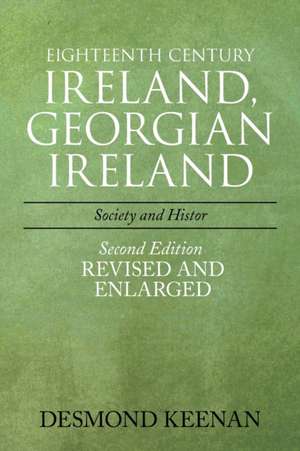Eighteenth Century Ireland, Georgian Ireland
Autor Desmond Keenanen Limba Engleză Paperback – 11 oct 2020
| Toate formatele și edițiile | Preț | Express |
|---|---|---|
| Paperback (1) | 319.04 lei 6-8 săpt. | |
| Xlibris US – 11 oct 2020 | 319.04 lei 6-8 săpt. | |
| Hardback (1) | 439.24 lei 6-8 săpt. | |
| Xlibris US – 11 oct 2020 | 439.24 lei 6-8 săpt. |
Preț: 319.04 lei
Nou
Puncte Express: 479
Preț estimativ în valută:
61.05€ • 62.98$ • 50.95£
61.05€ • 62.98$ • 50.95£
Carte tipărită la comandă
Livrare economică 26 martie-09 aprilie
Preluare comenzi: 021 569.72.76
Specificații
ISBN-13: 9781664128613
ISBN-10: 1664128611
Pagini: 1032
Dimensiuni: 152 x 229 x 60 mm
Greutate: 1.48 kg
Editura: Xlibris US
ISBN-10: 1664128611
Pagini: 1032
Dimensiuni: 152 x 229 x 60 mm
Greutate: 1.48 kg
Editura: Xlibris US
